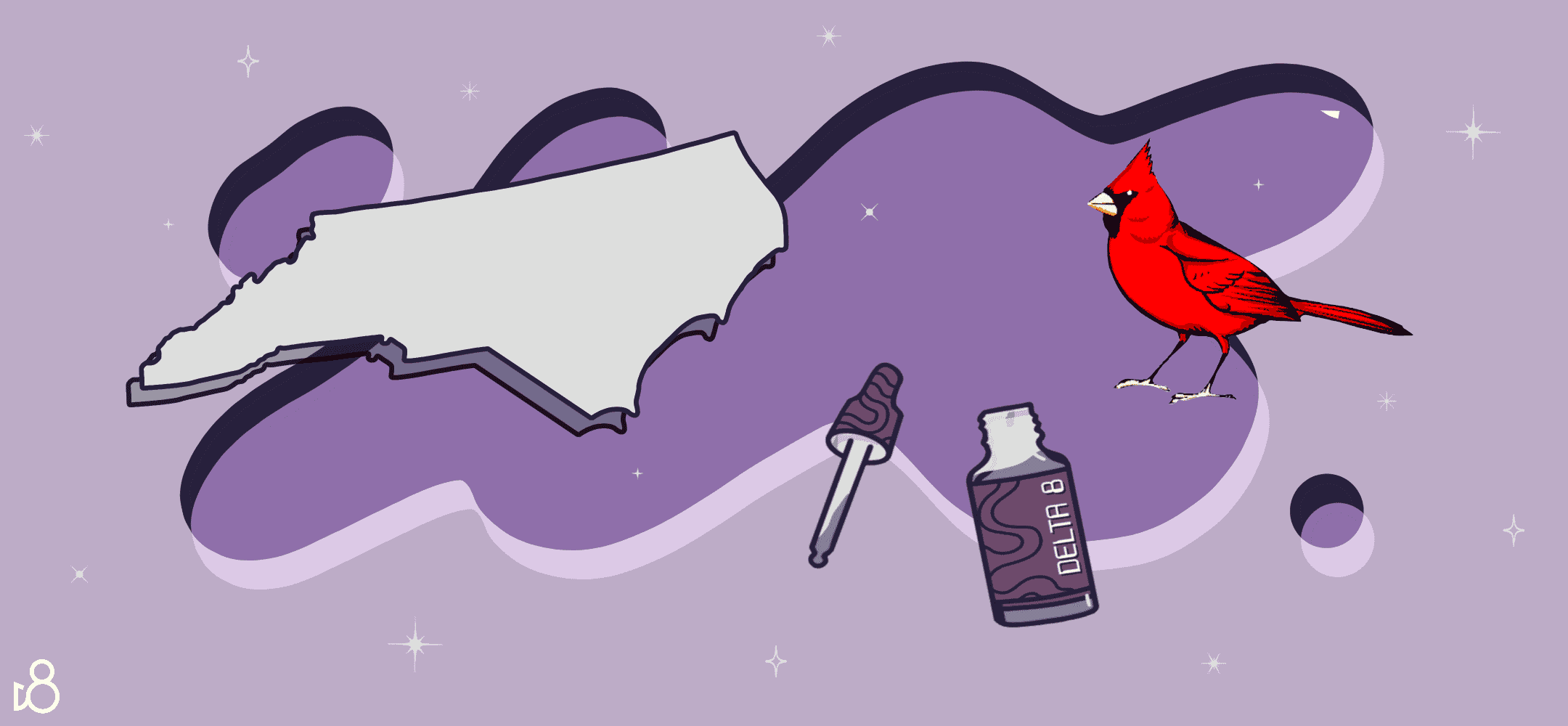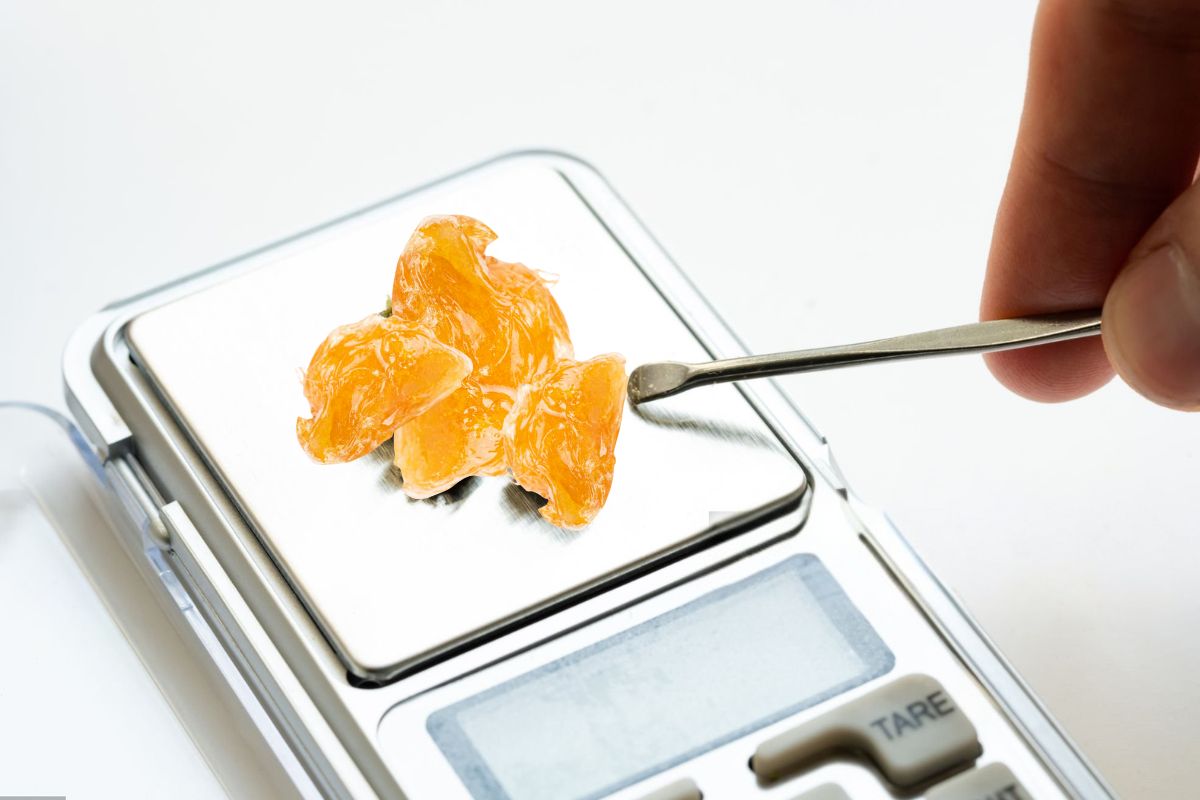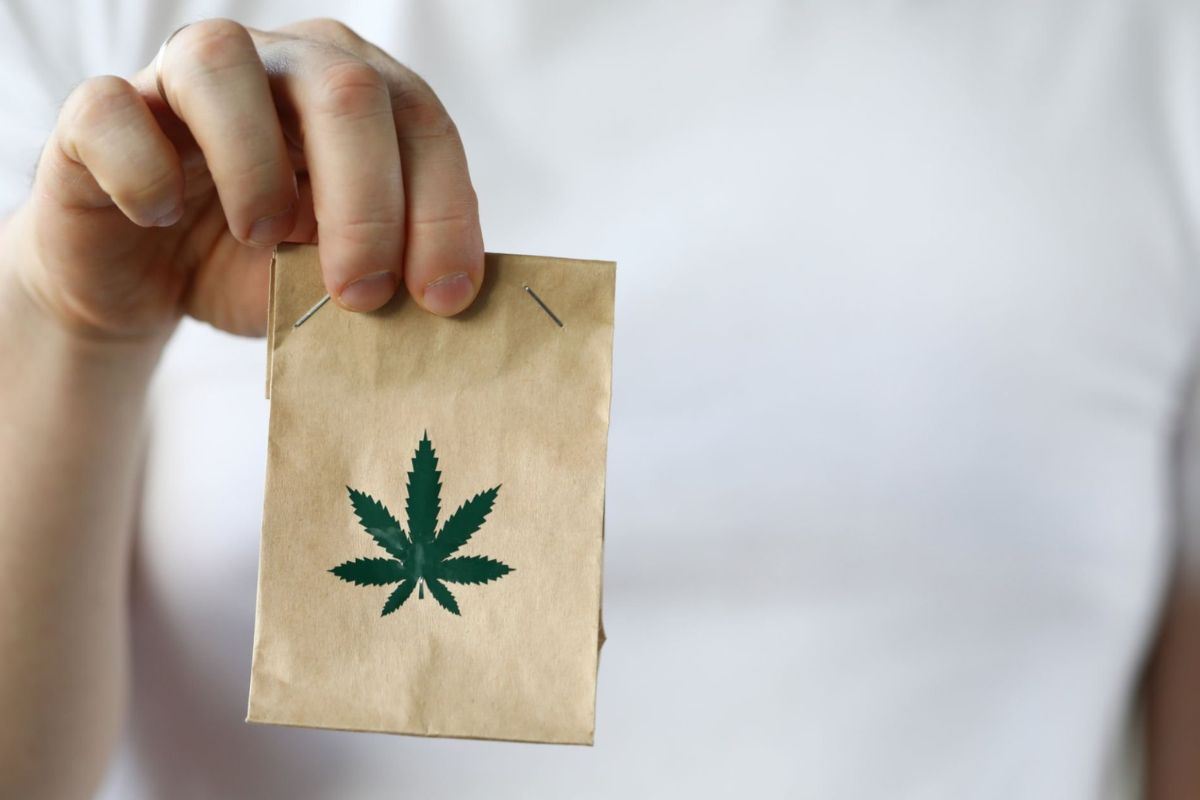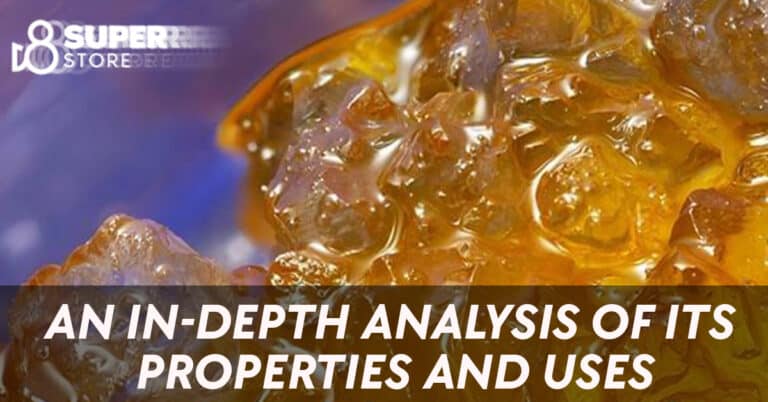Is Delta 8 Legal in North Carolina? Clarifying the Laws
Delta-8 THC sneaks around, barely noticed beside its famous relative, Delta-9 THC, the star ingredient of cannabis. Lately, people have been whispering about Delta-8 and its awesome benefits that seem just like Delta-9’s. But, there’s a catch: the legality of selling or holding Delta-8 changes depending on your spot in the US. Look at North Carolina, for instance. The laws around Delta-8 THC there aren’t easy to figure out, making both buyers and sellers puzzled.
The primary source of Delta-8 THC is hemp, which is federally legal under the 2018 Farm Bill, but regulations surrounding the production and sale of hemp-derived products often depend on state laws. As a result, the availability and legality of Delta-8 THC in North Carolina can be confusing for those interested in trying or selling the compound.
Key Takeaways
- The legality of Delta-8 THC in North Carolina is currently unclear
- Delta-8 THC is primarily derived from hemp and shares similarities with Delta-9 THC
- Consumers and businesses should be cautious due to the uncertainty surrounding Delta-8 THC’s legal status.
Delta 8 THC: Chemical Composition and Effects
Delta 8 THC is a lesser-known cannabinoid found in the cannabis plant. It has a slightly different molecular structure from its more popular counterpart, Delta-9 THC, which is the primary psychoactive compound in cannabis. Due to its unique molecular structure, Delta 8 has some distinctions in effects when compared to Delta-9 THC.
Comparison to Delta-9 THC
Delta-8 THC and Delta-9 THC are both cannabinoids, but they have differences in their chemical makeup which influence their psychoactive effects. While Delta-9 THC is known for its potent psychoactive properties, Delta 8 THC is considered to have milder effects. This means that people might experience less anxiety, paranoia, or overwhelming sensations when consuming Delta 8 compared to Delta-9 THC.
In addition to their psychoactive properties, both Delta-8 and Delta-9 THC have potential benefits for certain medical conditions. As they interact with the body’s endocannabinoid system, these cannabinoids can provide relief from pain, inflammation, and nausea. However, more research is needed to fully understand the therapeutic potential of these compounds.
When it comes to legality, Delta-8 THC exists in a legal gray area in some states. For instance, in North Carolina, Delta 8 THC is considered legal due to a loophole in the hemp legislation. However, state legislation may change or interpret the legality of Delta 8 THC differently. It’s essential to follow local laws and regulations regarding Delta 8 THC products.
In summary, Delta-8 THC is a cannabinoid closely related to Delta-9 THC but with milder psychoactive effects. Its legality varies by state, with some places like North Carolina considering it legal due to a loophole in hemp laws. As research continues, more information about the potential benefits and properties of Delta 8 THC will emerge, which may impact its legal status and usage in the future.
Legal Status of Delta 8 THC in North Carolina
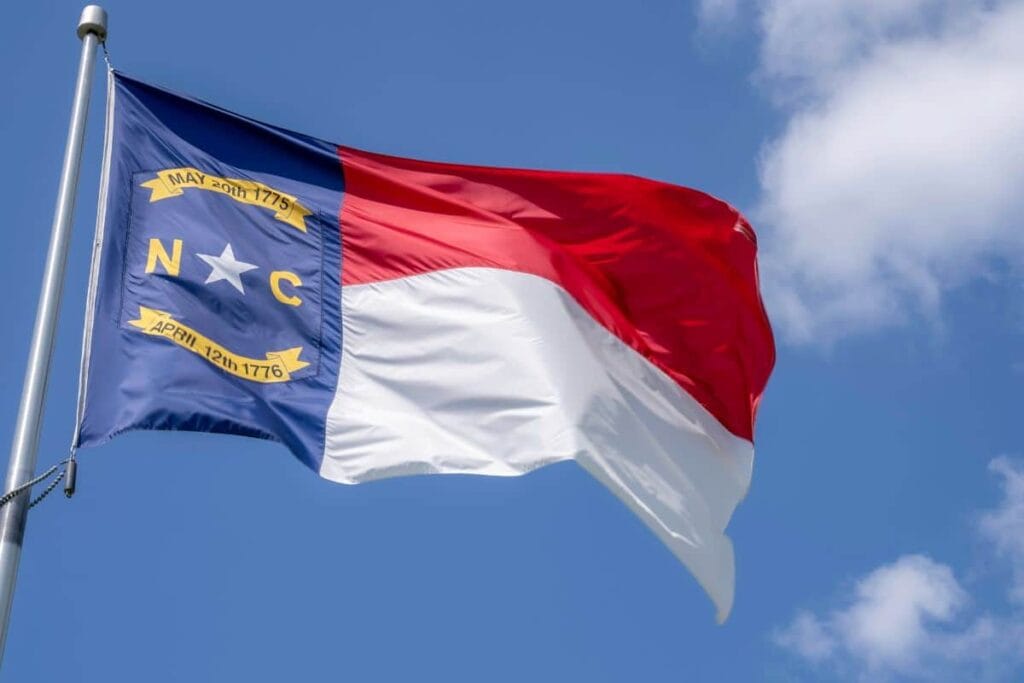
State Laws
In North Carolina, the legality of Delta 8 THC is not explicitly addressed in state laws. The state follows federal legislation, such as the 2018 Farm Bill, which governs the production and distribution of hemp and hemp-derived products. North Carolina allows the possession and sale of hemp-derived CBD products, leading to the assumption that Delta 8 THC derived from hemp might also be legal. However, it is crucial to note that each state has the right to set its regulations, and the legal status of Delta 8 THC may still be subject to state laws.
Federal Regulations
The 2018 Farm Bill legalized hemp and hemp-derived products, including cannabinoids, at the federal level, as long as the THC content remains below 0.3%. Delta 8 THC made from hemp falls under this category, making it federally legal. However, the federal law also classifies Delta 8 THC derived from marijuana as a controlled substance due to its psychoactive properties, which makes it illegal under federal law.
While there is a gray area in the legality of hemp-derived Delta 8 THC products, it is essential to stay updated on the latest legal developments, both at the state and federal levels. North Carolina residents should exercise caution when purchasing or possessing Delta 8 THC products until a clear legal framework is established.
Sources of Delta 8 THC: Hemp vs. Marijuana
Delta 8 THC is a cannabinoid derived from the cannabis plant. It is gaining popularity due to its purported health benefits and mild psychoactive effects in comparison to Delta 9 THC, the primary psychoactive compound in marijuana. Delta 8 THC can be sourced from both hemp and marijuana plants, but their legality is subject to varying regulations across states. In North Carolina, for example, Delta 8 THC appears to be legal, as it is found in hemp-derived products online sources.
Hemp-derived Delta 8 THC is produced from the Cannabis sativa plant with less than 0.3% Delta 9 THC content. The 2018 Farm Bill legalized the production, sale, and possession of hemp and hemp-derived products in the United States. Hemp-derived Delta 8 THC is generally considered legal in states where marijuana is illegal, due to the low Delta 9 THC content. In North Carolina, the state's hemp laws seem to allow the legality of Delta 8 THC.
On the other hand, marijuana-derived Delta 8 THC refers to the compound derived from marijuana plants, or Cannabis sativa plants with a Delta 9 THC content exceeding 0.3%. Marijuana remains a Schedule I substance under federal law, and its production and distribution are highly regulated. In states where marijuana is illegal or highly controlled, marijuana-derived Delta 8 THC is not considered legal.
It is important to note that while hemp-derived Delta 8 THC products can be found easily online, marijuana-derived Delta 8 THC products are typically available only through licensed dispensaries. Additionally, some evidence suggests there may be a need for further clarity regarding the legality of Delta 8 THC compounds derived from hemp.
In summary, Delta 8 THC can be sourced from both hemp and marijuana plants. Hemp-derived Delta 8 THC is generally considered legal in states like North Carolina, where marijuana remains illegal, while marijuana-derived Delta 8 THC is subject to stricter regulations. It is important for consumers to research and understand the legal restrictions surrounding Delta 8 THC in their state of residence before purchasing or consuming these products.
Products and Consumption Methods
Delta 8 THC, a cannabinoid derived from hemp, has been gaining popularity in the United States due to its potential benefits and effects. In North Carolina, various consumption methods and products containing Delta 8 THC can be found.
| Edibles are one popular way to consume Delta 8 THC. This includes gummies, chocolates, and baked goods that are infused with the cannabinoid. Edibles offer a discreet and convenient option for those who prefer not to vape or smoke. |
| Tinctures provide another way of utilizing Delta 8 THC and can be taken sublingually or added to food and beverages. Tinctures generally come in small dropper bottles, allowing users to accurately measure their desired dosage. |
| Vapes are yet another popular method for consuming Delta 8 THC, as they offer a fast-acting and portable option. Cartridges filled with Delta 8 THC oil can be attached to compatible vaporizers and provide an efficient and customizable experience. |
Delta 8 THC is also available in Hemp flower form, either in pre-rolled joints or as loose buds. This provides an option for those who prefer a more traditional smoking experience with the benefits of Delta 8 THC.
It’s important to note that Delta 8 THC products are derived from hemp, which was federally legalized under the 2018 Farm Bill. However, some states, like North Carolina, have varying regulations regarding the production, distribution, and consumption of such products. As consumers, it’s crucial to be aware of the state laws and purchase responsibly from reputable sources.
Purchasing and Selling Delta 8 THC in North Carolina
Delta 8 THC, a less potent cousin of the well-known Delta 9 THC, has recently gained popularity. However, its legality in North Carolina remains somewhat uncertain. Despite CBD being legal in the state, the hemp loophole creates ambiguity in the classification of Delta 8 THC and other hemp-derived compounds.
Online sales of Delta 8 THC products are common and can be easily accessed by customers. Many online stores and retailers selling CBD products also offer Delta 8 THC. Typically, these stores provide customer reviews which help guide purchasing decisions. However, the absence of age verification for online purchases can lead to easy access for underage individuals.
In the hemp industry, many businesses are taking advantage of the growing demand for Delta 8 THC by producing and selling food products infused with this compound. Tobacco outlets and internet sources have also joined the market for those looking to experience Delta 8 THC's potentially therapeutic effects in areas where Delta 9 THC products are illegal.
However, there have been cases where vendors have been penalized for selling Delta 8 THC products. This raises concerns for those looking to buy or sell these products in North Carolina. While some local legislators have commented on the legality surrounding Delta 8 THC, further clarification is needed to ensure both businesses and consumers remain within legal boundaries.
It is crucial for customers and vendors to stay informed about any changes in the legal status of Delta 8 THC in North Carolina. As the market continues to evolve, it’s essential to research and understand the risks associated with purchasing and selling this controversial compound.
Regulations and Restrictions
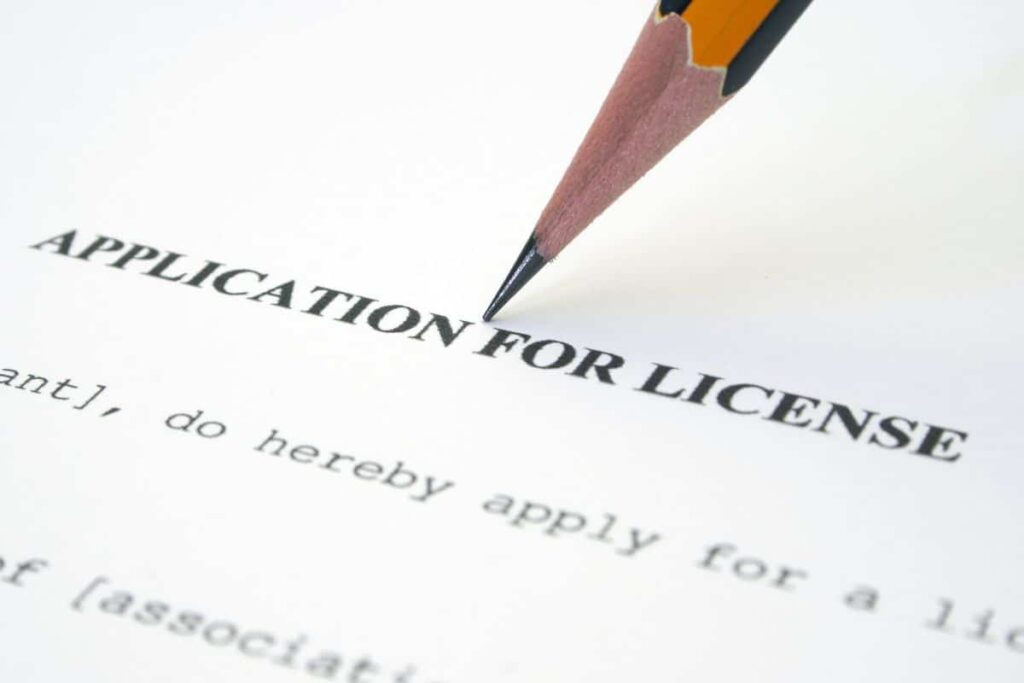
Hemp Cultivation and Licensing
North Carolina has established guidelines for the cultivation of industrial hemp, which can be used to produce various products, including delta-8 THC. The state’s Industrial Hemp Commission oversees the licensing and regulation of hemp cultivation. Any individual or business interested in growing hemp must apply for a license with the commission.
To obtain a license, applicants must submit a detailed application outlining their cultivation plans, including the size of their proposed grow area, seed varieties, and intended use of the harvested hemp. They must also provide information about their experience and qualifications in the agricultural industry. The commission reviews applications on a case-by-case basis, ensuring that approved projects align with state and federal regulations.
The cultivation of industrial hemp in North Carolina is subject to specific restrictions in order to protect public health and safety. Some of these restrictions include:
- Seed Selection: Only approved seed varieties from the Commission’s list can be used, ensuring low THC levels in accordance with state and federal regulations.
- THC Concentration: The total THC concentration of any industrial hemp plants may not exceed 0.3% on a dry weight basis. Any crop exceeding this limit may be classified as marijuana and subject to destruction.
- Testing: To ensure compliance with THC content requirements, random testing of hemp plants is conducted by the commission or a third-party laboratory.
Hemp cultivation in North Carolina is closely regulated, however, the legal status of delta-8 THC remains unclear. While it is derived from hemp, delta-8 THC is a psychoactive compound, and there are currently no established standards for testing products containing delta-8 THC. As a result, the legality of delta-8 THC products is subject to interpretation and may vary depending on individual state laws and regulations.
By adhering to the established regulations and restrictions, North Carolina hemp cultivators can contribute to a growing industry while complying with state and federal guidelines.
Safety and Quality Considerations
When it comes to Delta-8 products in North Carolina, safety and quality considerations should be a top priority. One of the most important factors in ensuring safety is proper lab testing. By conducting thorough tests, manufacturers can provide consumers with accurate information on the levels of Delta-8 THC, other cannabinoids, and potential contaminants in their products. Additionally, lab testing can help detect the presence of any unwanted substances, such as pesticides, heavy metals, and residual solvents.
Another aspect to consider in terms of safety and quality is the sourcing of the hemp used for producing Delta-8 products. Choosing organic options can reduce the risk of exposure to harmful chemicals and pesticides. Organic hemp is grown without the use of synthetic fertilizers, pesticides, or genetically modified organisms (GMOs). By opting for organically sourced Delta-8, consumers can have greater confidence in the purity and safety of the product.
In North Carolina, as with the rest of the country, it's essential for manufacturers to be transparent in their claims about the effects and benefits of Delta-8. Avoiding exaggerated or false claims is crucial for maintaining consumer trust and ensuring that individuals make informed decisions about using these products. Clear and consistently presented information about the product's contents, testing, and potential effects is key in promoting safe and responsible use.
In summary, to ensure the safety and quality of Delta-8 products in North Carolina, it’s essential to prioritize proper lab testing, use of organic and pesticide-free hemp, and avoid making exaggerated or false claims. With these considerations in mind, consumers can make informed choices and feel confident in their Delta-8 THC experiences.
Legal Implications and Future Outlook
Recent Court Rulings
Delta-8 THC has been a topic of discussion in various states, including North Carolina. While the compound is derived from legal hemp, its legal status is not entirely clear. The Controlled Substances Act does not explicitly mention Delta-8 THC, however, it can be argued that it falls under the definition of tetrahydrocannabinols.
The Drug Enforcement Agency (DEA) has placed some restrictions on the production and distribution of Delta-8 THC products, but there is still uncertainty surrounding its legality. Recent court rulings involving the DEA and hemp industry groups have given way to discussions whether or not it should be regulated the same as other cannabinoids.
In response to changing regulations, North Carolina’s definition of marijuana may also evolve to include Delta-8 THC. In 2019, a House bill aimed at establishing a medicinal marijuana program was introduced, which could potentially lead to further changes in the state’s treatment of Delta-8 THC. As neighboring states like Virginia legalized recreational marijuana, it is possible that North Carolina may also consider similar actions in the future.
Regarding the hemp industry, challenges involving the odor of marijuana and visual identification between marijuana and hemp extracts create difficulties for law enforcement. In some instances, hemp extract products containing Delta-8 THC have been seized due to law enforcement’s inability to distinguish them from illegal marijuana products. Court rulings in relation to these incidents will have a significant impact on the regulation and production of Delta-8 THC products in North Carolina.
In conclusion, the legal implications and future outlook of Delta-8 THC in North Carolina remain unclear. As more court rulings occur and legislation evolves, the state’s stance on Delta-8 THC may change.

Traveling and Possessing Delta 8 THC Products
Traveling with delta 8 THC products in North Carolina can be a tricky subject. Delta 8 THC is a cannabinoid found in hemp and is considered a legal substance under the 2018 Farm Bill, as long as it is derived from hemp with a delta-9 THC concentration of 0.3% or less. However, state laws vary, and North Carolina has not specifically legalized or regulated delta 8 THC products. Therefore, it is essential to exercise caution when traveling through the state with such items.
If you are a patient using delta 8 THC products for medicinal purposes, it’s crucial to understand the risks involved in carrying these items in North Carolina. Though the state has a medical marijuana program, it only covers a specific type of hemp extract containing high CBD and low THC levels. Keep in mind that your medical cannabis card from your home state may not be applicable in North Carolina, and traveling with delta 8 THC products without proper documentation could potentially lead to legal issues.
When considering traveling with delta 8 THC products, make sure to have the necessary documents to prove that the products you’re carrying are derived from hemp and have a delta-9 THC concentration of 0.3% or less. This might include lab test results and product packaging that clearly indicates the source of the delta 8 THC.
Pets can also benefit from the therapeutic properties of hemp-derived CBD products. However, delta 8 THC has not been thoroughly researched for its effects on animals, and it is often recommended to stick with CBD products specifically formulated for pets. Moreover, be aware that traveling with delta 8 THC products for your pets in North Carolina may pose the same legal uncertainties as it does for humans.
In summary, while delta 8 THC products are federally legal under certain conditions, individual state regulations may differ. Traveling and possession of delta 8 THC products in North Carolina may present some risks. If you choose to carry these products, it’s essential to stay informed about the state’s regulations and ensure you have the proper documentation to support your case.
Emerging Developments
Delta 8 THC is a popular cannabinoid, known for its mild psychoactive effects and potential medical benefits. However, its legality remains a contentious issue in many states, including North Carolina. Delta 8 THC is often sourced from hemp, making it different from the more well-known Delta 9 THC, which is derived from marijuana plants.
As the market for delta 8 continues to expand, other cannabinoids like Delta 10 THC are also emerging. Delta 10, similar to Delta 8, is found in minimal concentrations in the cannabis plant. It is synthesized using advanced techniques, such as distillation, to produce concentrated forms like distillates. These distillates can be used to create various products, including vape cartridges and edibles.
Synthetic THC is another area of development where cannabinoids are created artificially rather than being extracted from the plant. While the effects of synthetic THC may mimic those of the natural cannabinoids, they are often met with skepticism due to potential adverse effects and a lack of research.
The legal status of Delta 8 THC, Delta 10 THC, and synthetic THC in North Carolina is currently unclear. While the production and use of the cannabis products containing Delta 9 THC remains illegal in the state, the regulations for less potent cannabinoids like Delta 8 are not well-defined. It’s crucial for individuals interested in these products to remain vigilant about updates to the state laws and regulations affecting the use and sale of these cannabinoids.
In conclusion, the emerging developments in Delta 8 THC, Delta 10 THC, and synthetic THC are worth keeping an eye on, as these cannabinoids offer potential benefits and a unique user experience. However, the legality surrounding them in states like North Carolina is still uncertain, with lawmakers potentially needing to clarify their stance on these substances in the future.
Frequently Asked Questions
What are the regulations surrounding Delta-8 THC in North Carolina?
Delta-8 THC regulations in North Carolina are not explicitly defined. However, the state has legalized industrial hemp under Senate Bill 313. While Delta-8 THC can be derived from hemp, it is still important to check local laws and regulations before purchasing or consuming Delta-8 products.
Does the legal age to buy Delta-8 differ from Delta-9 in North Carolina?
Currently, there is no specific information on the legal age to buy Delta-8 THC in North Carolina. It is advisable to follow the same guidelines as for purchasing Delta-9 THC products, which generally requires the consumer to be at least 21 years old.
Are there restrictions on public consumption of Delta-8 in NC?
Since there is no explicit information on Delta-8 THC regulations in North Carolina, it is recommended to follow the same public consumption rules for marijuana or Delta-9 THC products. Typically, public consumption is prohibited, and you should only consume these products in private residences or designated areas.
Can Delta-8 be legally purchased at age 18 in North Carolina?
As mentioned earlier, the legal age for purchasing Delta-8 THC products in North Carolina is not explicitly defined. However, following the same guidelines as for purchasing Delta-9 THC products, it is likely that the minimum age is 21 rather than 18 years old.
Where can I find reliable Delta-8 vendors in North Carolina?
Due to the ambiguity of Delta-8 THC regulations in North Carolina, it is essential to find reliable vendors that adhere to state and federal regulations. Research the company’s website, look for lab-test results, and read customer reviews to ensure that you are purchasing high-quality and compliant products.
Is there a difference between the legality of Delta-8 and Delta-10 in NC?
The legality of Delta-10 THC in North Carolina is also unclear, as no specific regulations have been established for either Delta-8 or Delta-10. It is recommended to stay up-to-date on state regulations and only purchase products from trustworthy vendors that comply with existing hemp and cannabinoid laws.
Resources:
- https://en.wikipedia.org/wiki/Delta-10-Tetrahydrocannabinol
- https://www.fda.gov/consumers/consumer-updates/5-things-know-about-delta-8-tetrahydrocannabinol-delta-8-thc
- https://www.mdpi.com/460492
- https://ajph.aphapublications.org/doi/full/10.2105/AJPH.2021.306499

